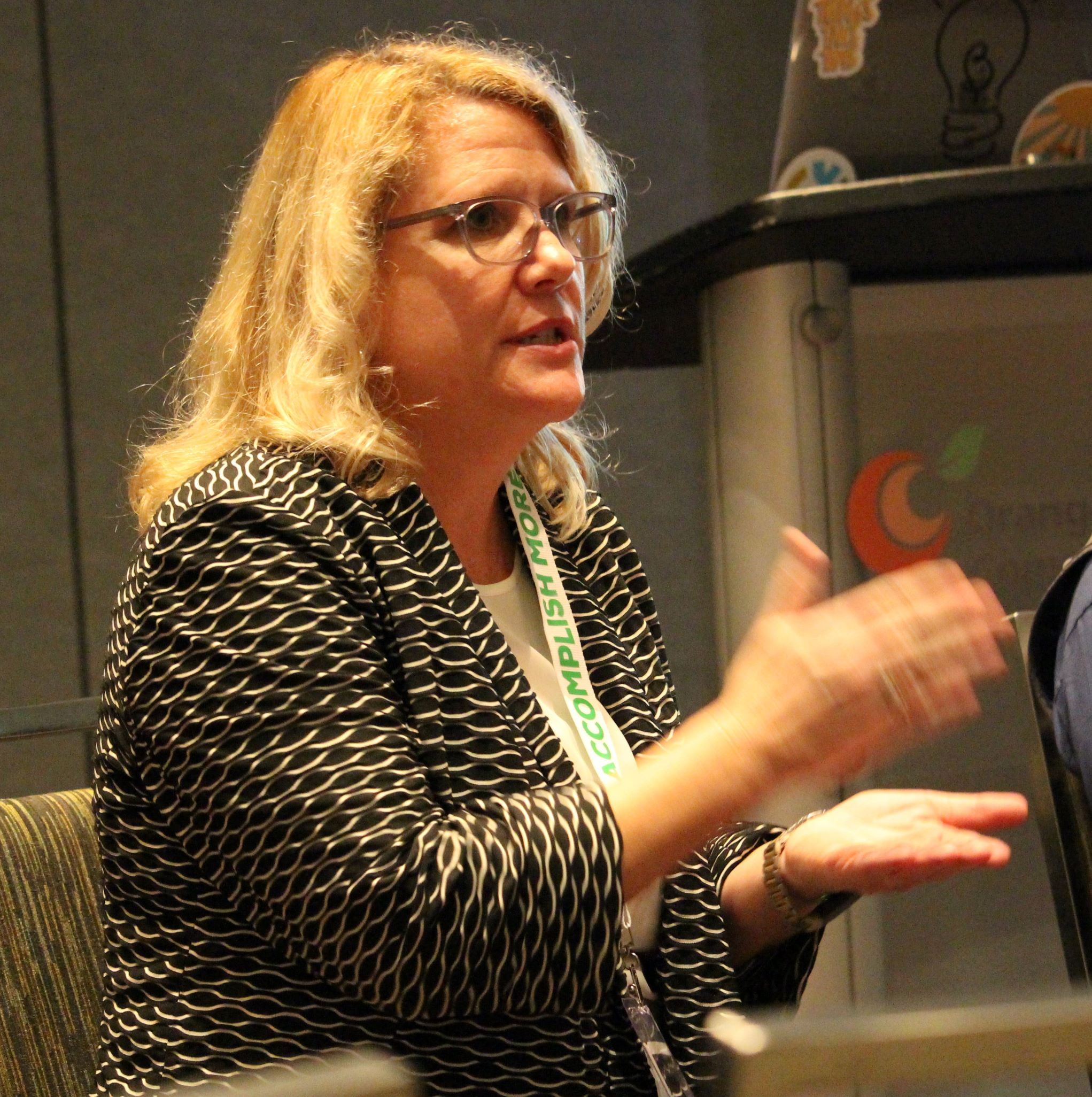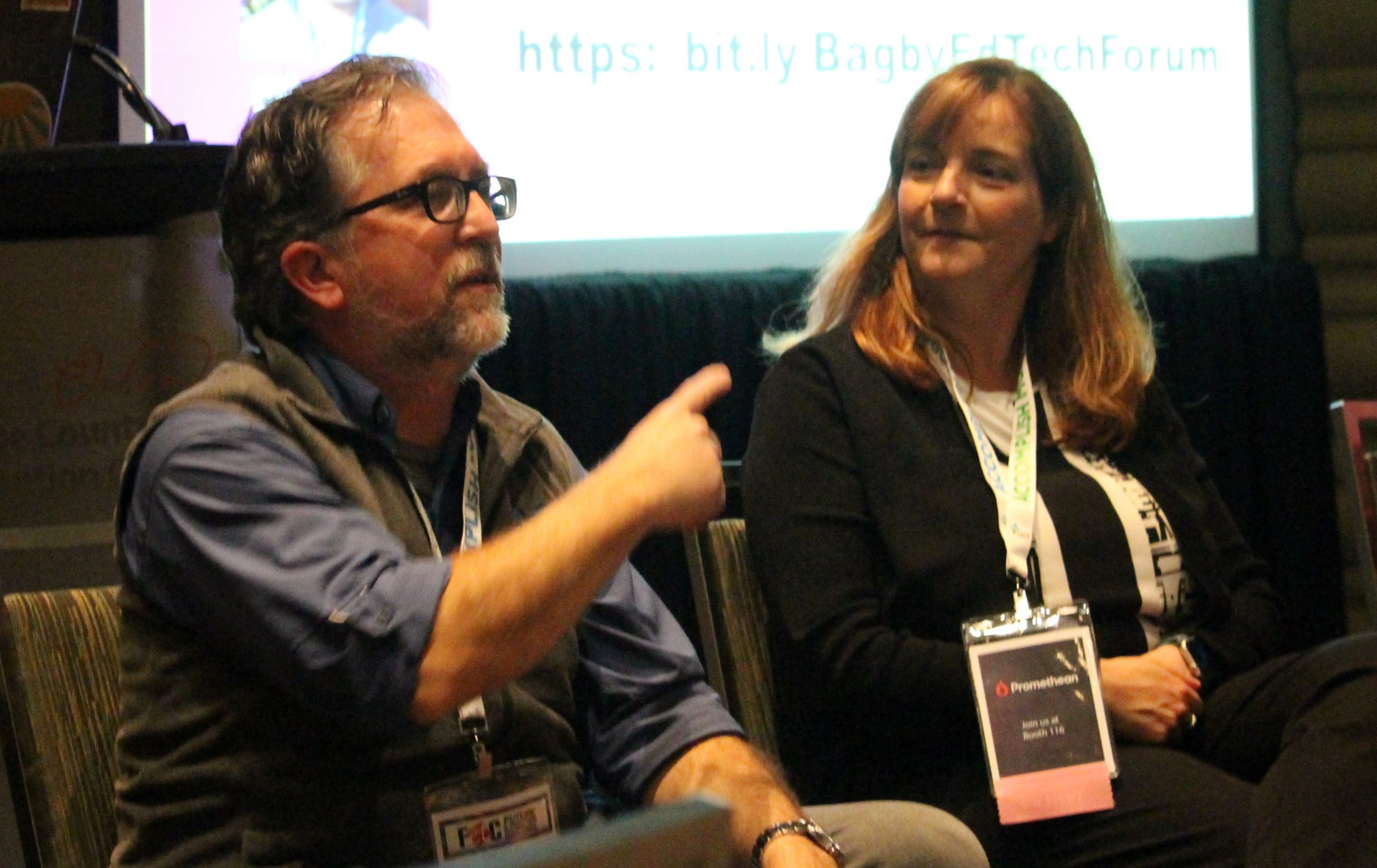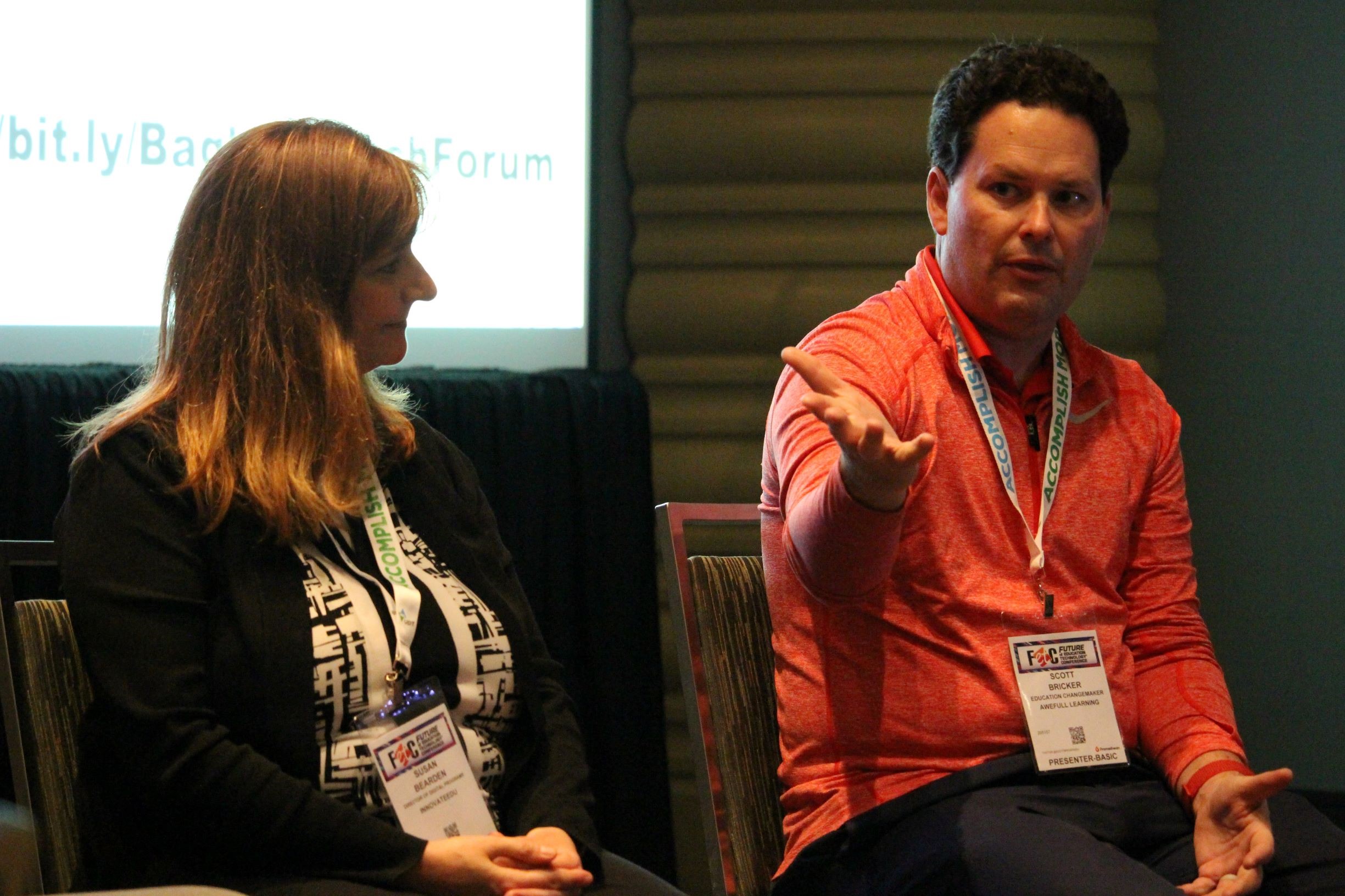
Catherine Jones, Principal of Prescott South Elementary STEM Platform School in Tennessee, summed up the massive shift in learning with a couple of striking analogies during a panel session of tech leaders at Wednesday’s Future of Education Techology Conference (FETC) in Orlando.
“We just had a huge price increase with everything that skipped a decade,” Jones said. “I feel like education and technology has the potential to do the same thing. We used to say we’re preparing kids for the future that we can’t imagine. I felt like that nine weeks [after the pandemic], and that summer, that future we could not imagine took place. It’s almost like we skipped something, like the keys on the piano were missing, and we jumped.”
As scary as that leap was and for all of its challenges, Jones said, “It was pretty natural.”
That sentiment was echoed by a couple of other tech leaders during the engaging FETC session. Mike Ballard, who leads technology training and development for Hamilton County Schools in Tennessee, said they were pretty nimble in their response to that fateful Friday the 13th in 2020 and haven’t looked back. They were fortunate to have high-speed internet in place and the ability to get hotspots into the hands of rural families, even though 65,000 devices needed to get to students.
One of the big pluses was that Ballard encouraged teachers several years ago to learn about how Google tools work. The schools power through on the strength of support from friend and acclaimed coordinator of instructional technology Greg Bagby, the moderator of the FETC session, and so many others in the district and outside of it.
“It was so refreshing to have other people with different perspectives,” he said. “Everybody was dealing with the exact same situation in the exact same way that we are. Every time we would get together, we would all learn that there’s a whole other way to think about this. I would highly encourage you to build community outside of your own districts. Because that was a saving grace.”
Susan Bearden, Director of Digital Programs, InnovateEDU and former CIO for the Consortium for School Networking (CoSN), expressed deep appreciation for those making the transformation to digital and has been working hard to support and promote data interoperability to help break down some of the silos that exist.
“I spent the first part of the pandemic being incredibly grateful that I actually wasn’t still based in a school,” Bearden joked. “To all of you who have been in a district or school during the pandemic, thank you from the bottom of my heart for the work that you’re doing.”

Scott Bricker, founder of Awefull Learning spent 22 years in K-12 classrooms and on campus in California, echoed the notion of collaboration, something that was pushed by FETC keynote speaker Shawn Achor on Wednesday.
“We had no idea we were spending six years preparing for a pandemic. Thank God we had team already in place,” he said. “This idea of social connectedness and how learning improves when people learn together I think that’s what we all did. I hope we realize that once we move to this next phase that it is still valuable and that we don’t need to live in silos.”
Bricker notes three things that he hopes K-12 embraces in the future of education and technology:
- “Every future teacher needs to understand the brain better. You would not want to go to a restaurant with a chef that never studied food. And yet we put students in classrooms with teachers who have never studied the brain. I hope that we begin to center our teaching and learning around what we know about the brain.
- I think we need to make learning fun again. Kindergarten, first grade, second grade, you all have it right—play time, time to pause and let them get a dance. When [students] get to high school, it’s already ingrained in them that it’s about GPA, LSAT score, achievement. No wonder they hate learning.
- Teachers are not as happy across the board as they were when I started my profession in the early 2000s. And I think we need to get back to that. I would love to see all teachers loving their jobs again.”
Jones noted the challenges facing education but sees a lot of positives, especially coming from the embrace of technology.
“There are so many amazing things happening in education, mind-blowing amazing things,” she said. “For some reason, society is interested in a negative ‘something.’ But I’m telling you, this is a great time to be in education.”




